Contract Law Case Study: Analysis of Precedent and Contracts
VerifiedAdded on 2021/04/21
|6
|974
|182
Case Study
AI Summary
This document presents a comprehensive analysis of three contract law case studies. The first case examines the doctrine of precedent, determining whether a decision of the High Court is binding on the Victorian Supreme Court of Appeal. The second case focuses on contract formation, specifically the rules of offer, acceptance, and revocation, analyzing whether a valid contract was formed between two parties considering the timing of communications. The third case explores the intention to create legal relations in a domestic setting, examining whether a contract exists between friends, considering the principles from cases like Merritt v Merritt and Balfour v Balfour, alongside the application of the objective test. Each case study includes the identified issue, relevant rules, application of those rules to the facts, and a conclusion. The document references key cases such as Byrne v Van Tienhoven, Adams v Lindsell, and Carlill v Carbolic Smoke Ball Co to support its arguments.
1 out of 6
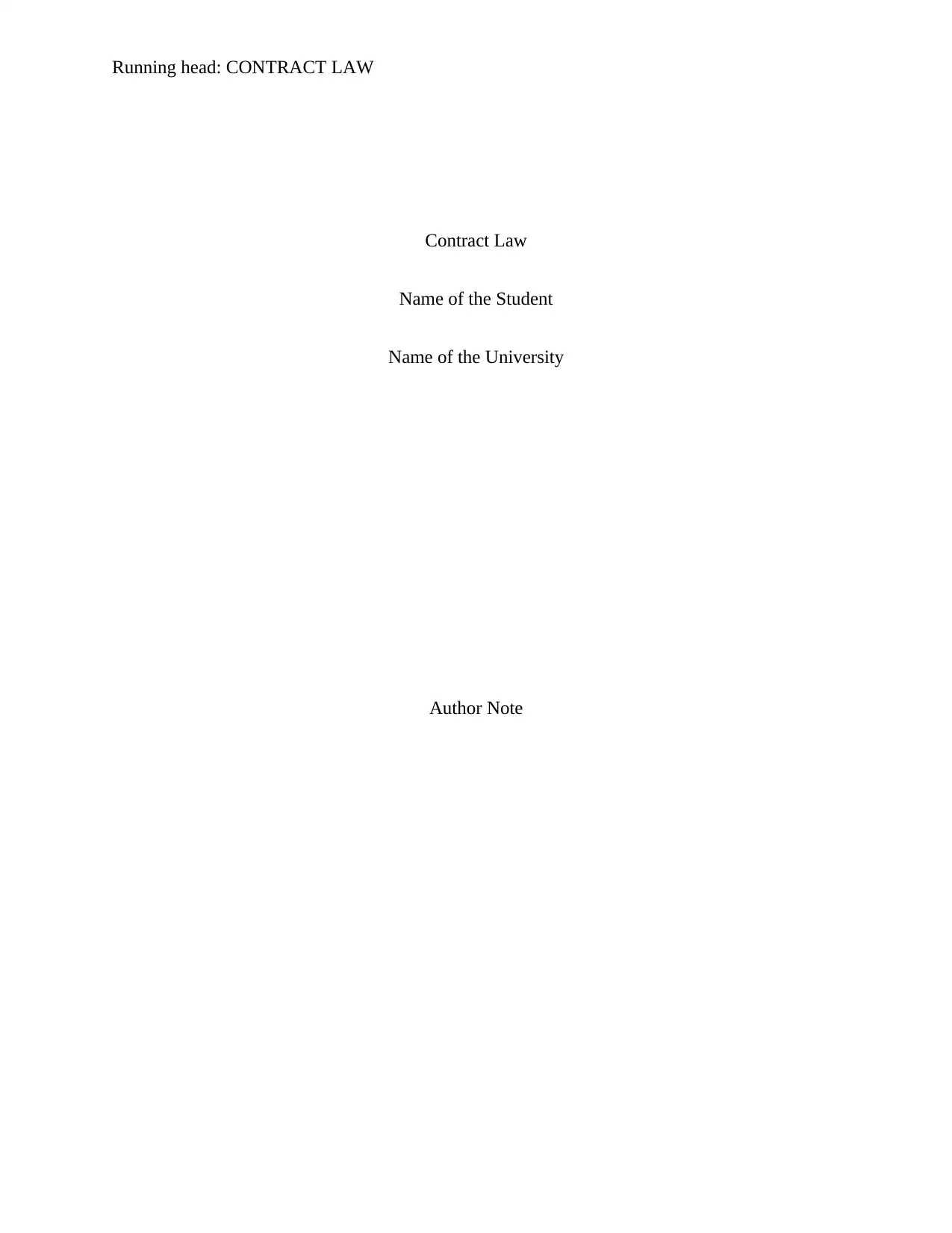
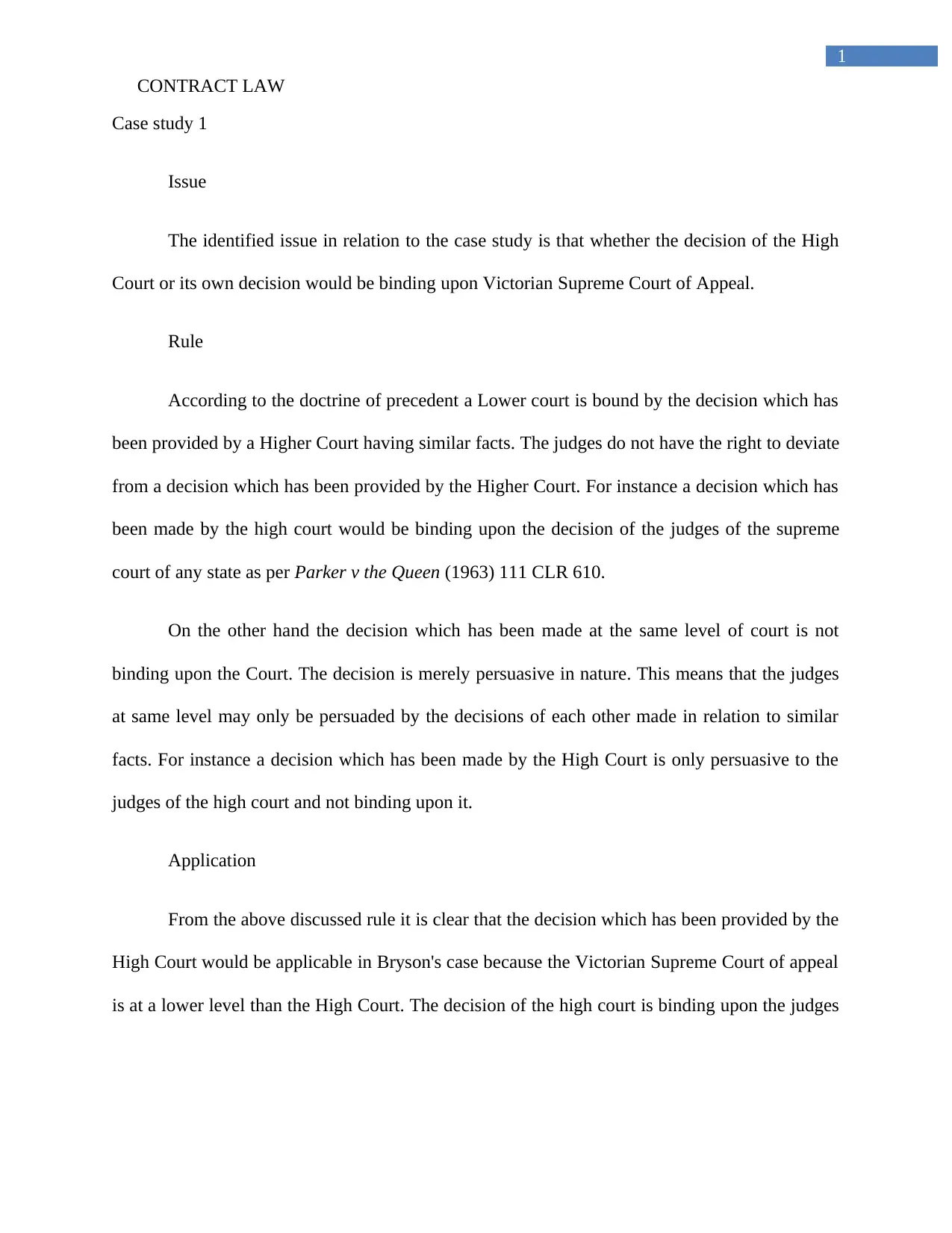
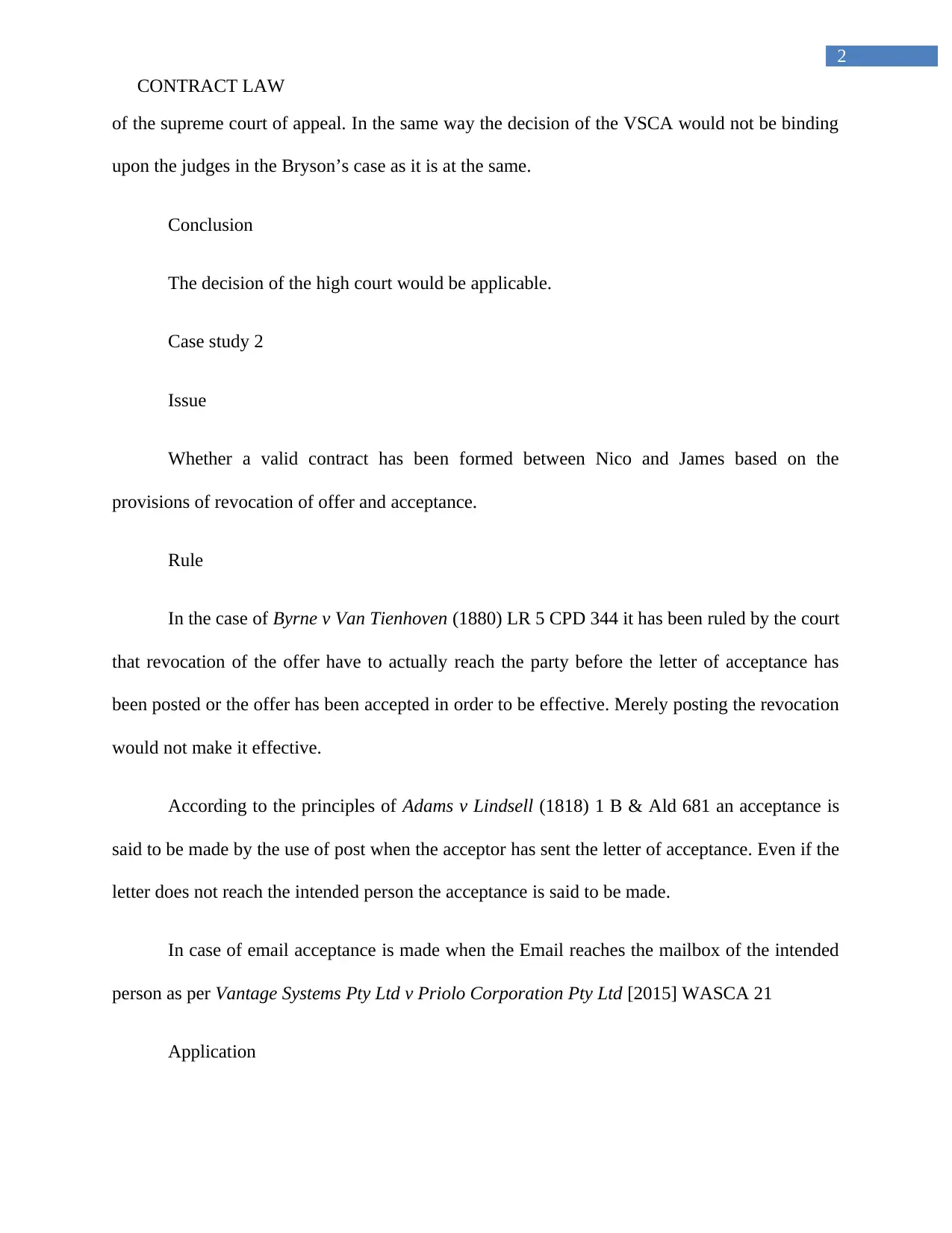

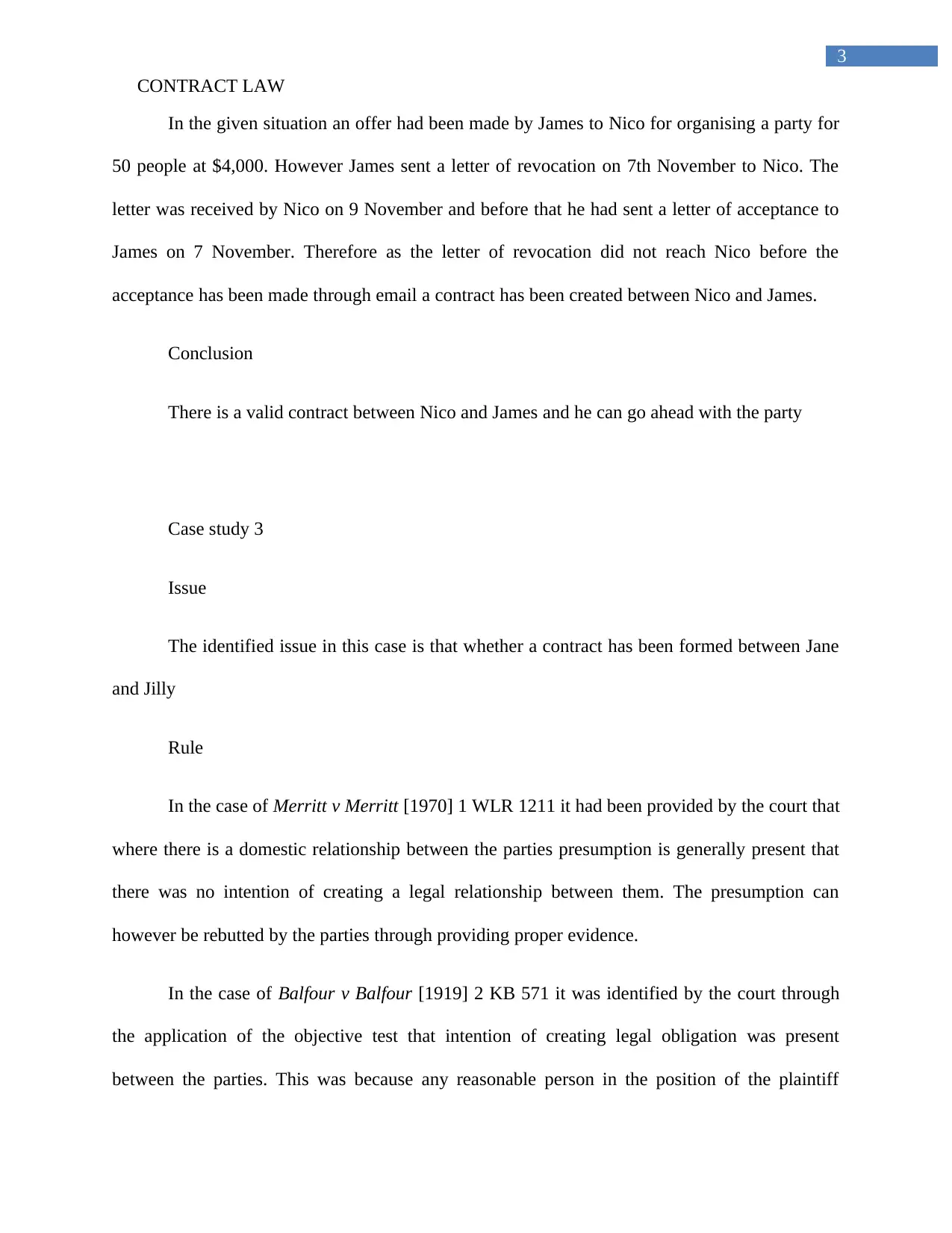
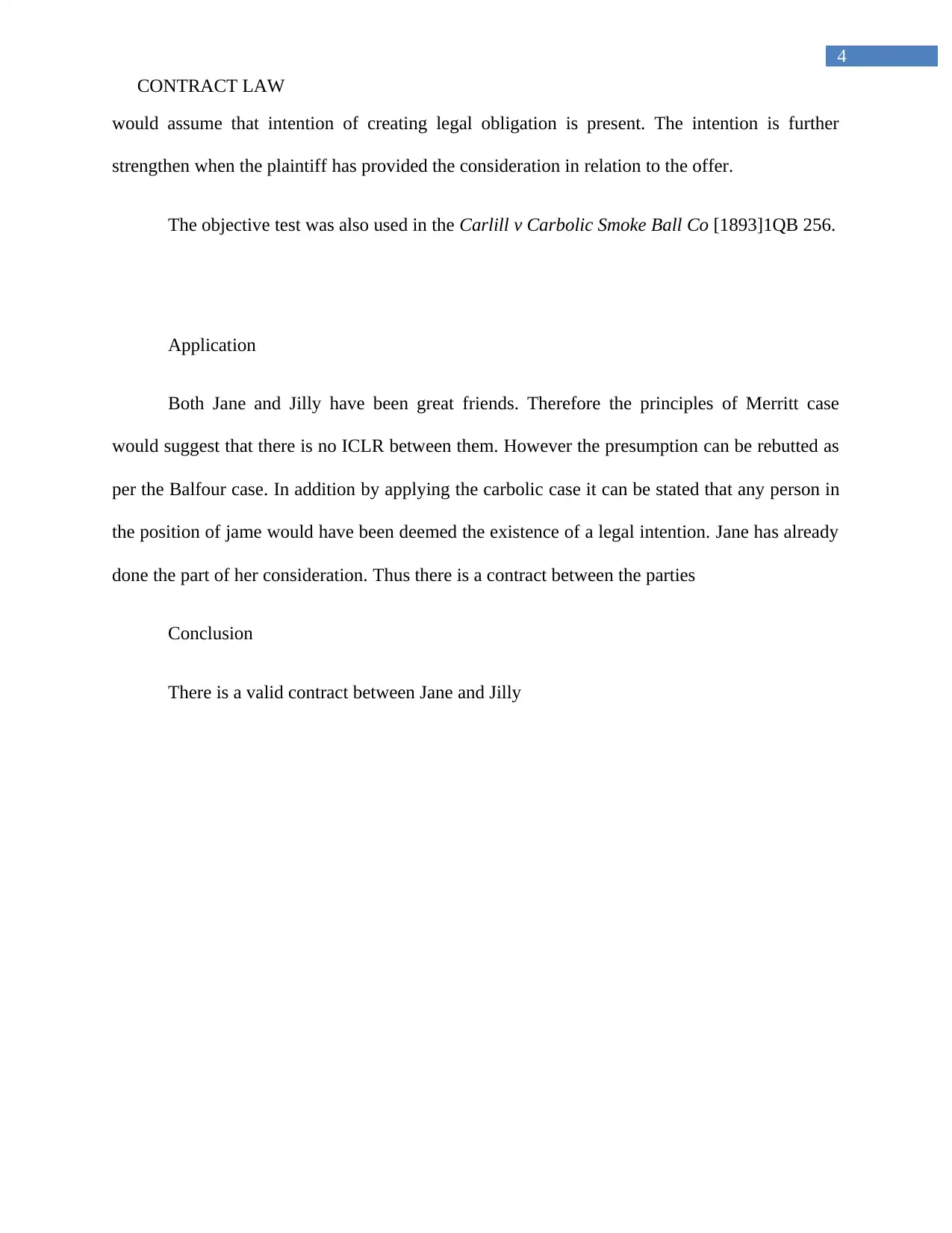
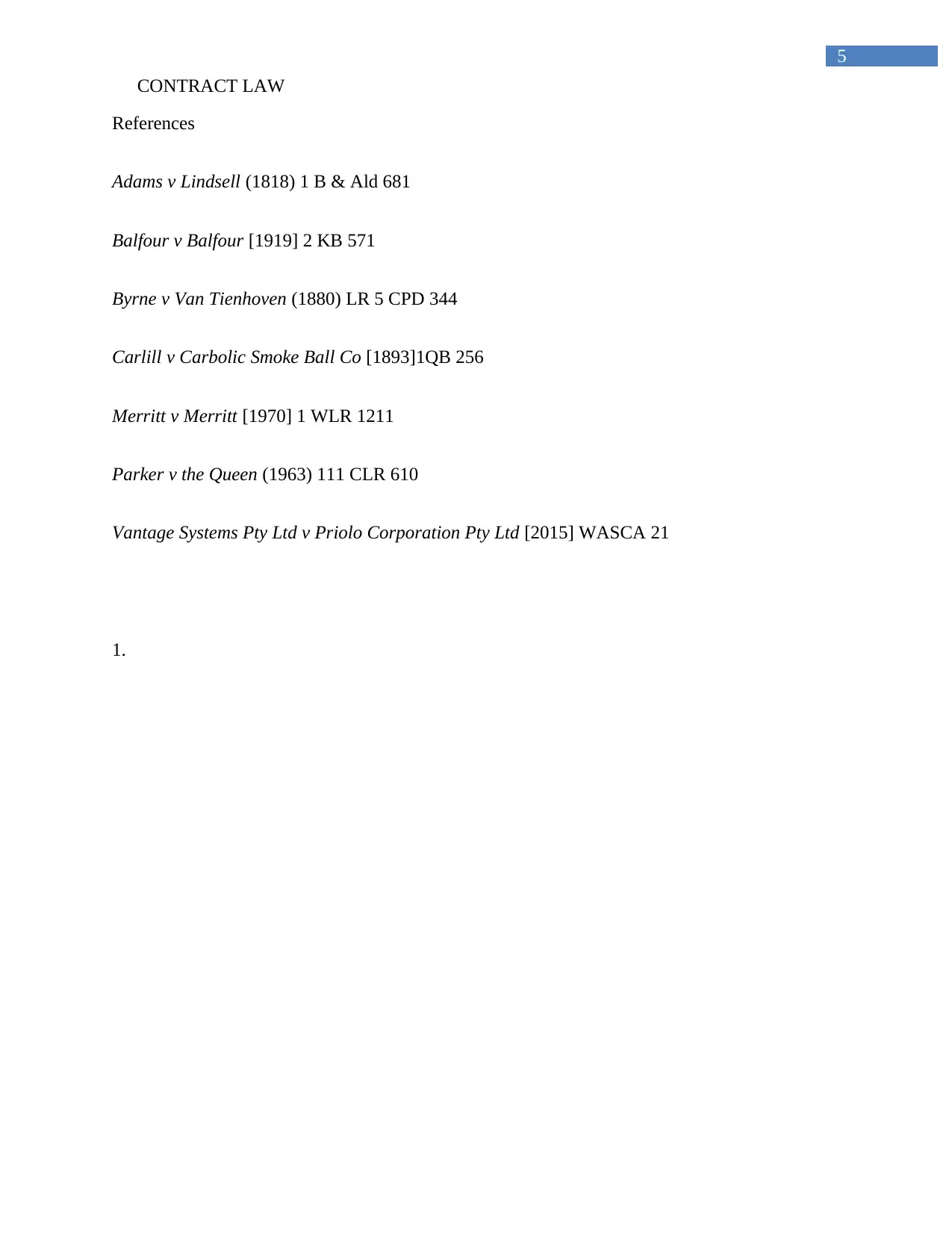





![[object Object]](/_next/static/media/star-bottom.7253800d.svg)